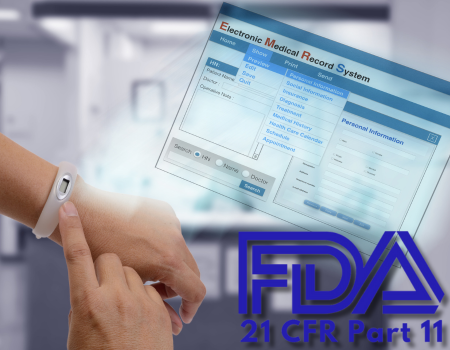Call us: +1-855-202-3299
Email: [email protected]
21 CFR Part 11 (Electronic Records/Signatures) Compliance For Computer Systems Regulated By FDA
Speaker: Carolyn Troiano
Speaker Designation: FDA Compliance Consultant

Call us: +1-855-202-3299
Email: [email protected]
Speaker: Carolyn Troiano
Speaker Designation: FDA Compliance Consultant

When using ER/ES capability, certain limitations exist, such as disabling print functionality to ensure decisions are based on electronic records only. User identification must be precise, ensuring the signer is the one whose credentials are verified by the system. Password management rules must be strictly followed, and passwords kept secure.
The system must clearly define the meaning of a signature, indicating whether a person conducted the work, recorded the result, reviewed it, or approved it. There must also be clear segregation of duties; the person recording the result should not be the same as those reviewing or approving it.
Companies must establish specific policies and procedures detailing responsibilities and guidelines for implementing and using ER/ES capabilities. These policies should clarify the 21 CFR Part 11 regulation and outline the company's approach to compliance.
This webinar will cover the key aspects of complying with 21 CFR Part 11 in both validating systems and maintaining them in a validated state throughout their entire life cycle. In addition, we will cover the FDA draft guidance issued in March 2023 for computer systems using electronic records/signatures in support of clinical trial work. The guidance is in the form of a Q&A and focuses on some very key points that will be discussed. Specifically, it:
This webinar will help you understand in detail the application of FDA’s 21 CFR Part 11 guidance on electronic records/electronic signatures (ER/ES) for computer systems subject to FDA regulations.
This is critical in order to develop the appropriate validation strategy and achieve the thoroughness required to prove that a system does what it purports to do. It also ensures that a system is maintained in a validated state throughout its entire life cycle, from conception through retirement.
ER/ES capability can vary, and the approach should be based on the specific case and the risk of failing to meet the guidance associated with it.
For clinical trial work, the new draft guidance from FDA (2023) includes in Q&A format some clarifications and new recommendations. These are critical to one’s understanding of validating clinical trial systems in compliance with the FDA. This draft addresses newer technology, which is continuously evolving.
The regulation was established in response to the increasing use of electronic records in regulated industries, recognizing the need to maintain the integrity, security, and authenticity of these records. 21 CFR Part 11 applies to all aspects of electronic records and signatures, including creation, modification, maintenance, archiving, retrieval, and transmission. It aims to protect public health by ensuring that electronic records can withstand scrutiny in legal and regulatory contexts.

Carolyn Troiano has more than 40 years of experience in computer systems and data in the pharmaceutical, medical device, tobacco, cannabis, and other FDA-regulated industries, as well as in banking, insurance, and government agencies. She is currently an independent consultant, advising companies on data integrity, privacy, and compliance, including implementing large-scale, complex systems, such as Enterprise Resource Planning (ERP), Customer Relationship Management (CRM), Clinical Trial Master File (TMF and eTMF), Manufacturing, Quality, and Enterprise Content Management (ECM) systems.